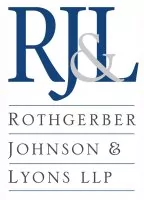Originally published August 2005
The Supreme Court recently let stand a case holding that the National Labor Relations Act ("NLRA") preempted state law claims brought by a non-union company against a union "salt." (A "salt" is a union organizer who tries to get hired at a non-union company in order to organize the company from within.) The decision is a good reminder of the well-settled doctrine of Garmon preemption, which holds that the NLRA preempts state law claims for relief that are based on conduct that is "arguably" protected or prohibited by the NLRA. San Diego Bldg. Trades Council, Millmen's Union, Local 2020 v. Garmon, 359 U.S. 236 (1959).
The case left alone by the Supreme Court was a Minnesota Court of Appeal's decision. Wright Elec. v. Ouellette, 686 N.W.2d 313 (Minn. App. 2004), cert. denied June 20, 2005. In that case, Thomas Ouellette, a union "salt," lied on his employment application with Wright Electric in order to hide his union affiliation. When the company discovered his deception, it fired Ouellette for "falsifying information on [his] employment application." It then sued Ouellette in state court, bringing Minnesota state law claims against him for breach of at-will employment contract, breach of fiduciary duty and duty of loyalty, recovery of salary and benefits, and unjust enrichment.
The Minnesota appeals court reversed the lower court's finding that Wright Electric's claims were not preempted by the NLRA. The appellate court noted that the NLRA protects a union member's right to "salt" non-union workplaces, which includes the right to lie when applying for employment in order to hide his or her union affiliation. Finding that "salting" was "arguably" protected by the NLRA, the appellate court ruled the company's claims were preempted by the federal statute.
Preemption under the Garmon doctrine does not require that a plaintiff have a certain remedy before the National Labor Relations Board ("NLRB"), the federal agency that enforces the NLRA, or even that the NLRB will hear the claim in the first place. Bassette v. Stone Container Corp., 25 F.3d 757, 759-60 (9th Cir. 1994). Instead, once a court determines that a plaintiff's claim alleges conduct that is "arguably" or "potentially" subject to regulation or protection under the NLRA, federal labor law preempts state law and the NLRB has exclusive jurisdiction.
Practical Significance
Employers should remember that certain state law claims brought against them by their employees, or their employees' union, may be preempted by the NLRA. For example, several federal courts have held the NLRA to preempt state law claims against an employer alleging the employer fraudulently induced employees to ratify certain terms contained in a collective-bargaining agreement. These claims are "arguably" prohibited by the NLRA's provisions requiring an employer to bargain in good faith. Depending on the employer's particular circumstances, and the particular claims asserted against it, the Garmon preemption doctrine could be an advantageous tool for employers. At the same time, employers, particularly non-union employers, should gain an understanding of what rights and protections the NLRA affords all employees in order to avoid NLRA preemption of any claims it may assert against an employee or union.
Kato Crews is a litigation associate representing and advising business clients in all aspects of their endeavors. While his practice is focused on general litigation matters, Kato specializes in the areas of labor and employment law, representing employers in all aspects of the employment relationship. He joined the firm after serving as an attorney with the U.S. National Labor Relations Board. Kato practices in the firm's Colorado Springs and Denver offices.
The content of this article is intended to provide a general guide to the subject matter. Specialist advice should be sought about your specific circumstances.


